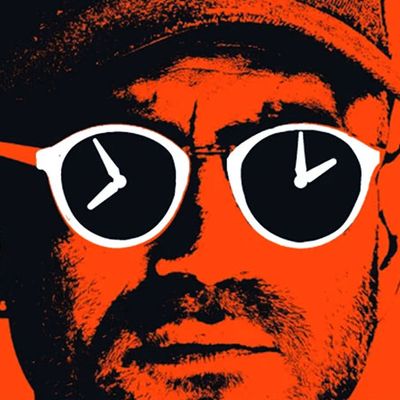
Podcasting’s brutal year, which has seen the young medium rocked by volatile media economics and the bill for the past few years’ worth of corporate consolidation coming due, isn’t quite finished doling out its indignities.
This week brought news that Spotify will not be renewing Jonathan Goldstein’s Heavyweight, likely one of the best podcasts ever made, and Stolen, the critically acclaimed series led by Connie Walker whose most recent season won both a Pulitzer and a Peabody. This sucks, but the development is ultimately unsurprising. Spotify has been steadily divesting from any podcast activity that doesn’t resemble the low-overhead, high-return-per-episode model of Call Her Daddy, The Joe Rogan Experience, and The Bill Simmons Podcast, and if the past year and change has illustrated anything, it’s that Spotify isn’t really in the business of creative excellence. (Indeed, it’s barely in the business of paying musical artists.)
“We will work with the show creator to ensure a smooth transition for wherever the series goes next,” a spokesperson told the Verge. Which is great, because it would suck even harder if those feeds were stuck in corporate nowhere-land.
These cancellations come as part of a broader layoff round at Spotify. Its third in 2023, this round lobs off a whopping 1,500 jobs, or 17 percent of the workforce, from the company. At this point, any analysis pegging the ongoing restructuring solely to Spotify’s podcast investments is just willful ignorance. (How many podcast-related jobs were left?) Rather, as noted in The Wall Street Journal, the company had nearly doubled its head count across the board over the past few years, fitting a pandemic-era trend where tech companies responded to what was then ballooning digital activity by hiring aggressively and taking advantage of a lower interest-rate environment to finance their means to do so. We’re in a much different world today. Its investors are demanding greater immediate profitability, not potential growth, and so the company has continued to respond in kind by taking a hatchet to its labor force. That the move was executed so soon after “Wrapped” season, i.e., the company’s most acute period of free marketing and expressed consumer goodwill, feels particularly cynical.
But the suck persists well beyond Spotify’s borders. The broader picture for narrative series like Heavyweight and Stolen continues to look bleak. What is the list of potential buyers for these two accomplished, well-regarded shows that presumably have sizable followings baked into their feed? One could perhaps theorize an In the Dark scenario, except that Condé Nast is trying to dramatically cut its own cost structure as well. My own parent company, Vox Media, just instituted another round of layoffs itself. NPR just hired a new podcast chief, but the organization presumably still isn’t in a financial place where it’d fund narrative podcasts that can’t also fit into the metabolism of broadcast radio. The CBC is cutting 10 percent of its own head count, citing a CAD$125 million shortfall. WNYC is reallocating its focus to local. Does the New York Times have any appetite for investing in another narrative audio unit outside of Serial Productions? Are either SiriusXM and iHeartMedia interested at all in properly investing in shows like Heavyweight and Stolen? How much longer will Wondery bankroll narrative podcasts?
Then again, this particular line of questioning still uses a pre-2023 way of thinking. Which is to say, it assumes that the only viable market for narrative series is one generated by the presence of larger institutional buyers — and not, say, something smaller, leaner, and more internal from the get-go. There’s been a lot of energy bubbling up lately among the podcast community around alternative publishing structures — in particular, one that practices a worker co-op structure, à la Maximum Fun, Defector Media, Remap Radio, and Aftermath. Could that model support something like Heavyweight and Stolen? If there were ever a time to find out, this is it.


